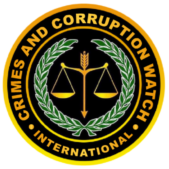What is Corruption?
Corruption is defined as the misuse of entrusted power for personal gain.
Corruption undermines confidence, undermines democracy, suppresses economic development, and aggravate inequality, poverty, social division, and the environmental disaster. We can only expose corruption and hold corrupt people accountable if we understand how corruption works and the mechanisms that support it.
Fundamentals
Corruption can manifest itself in a variety of ways, including:
- Public officials who demand or accept money or favors in exchange for their services,
- Politicians misappropriating public funds or awarding public jobs or contracts to their supporters, friends, and families.
- Companies bribing officials in order to secure profitable deals
Corruption can occur in a variety of settings: including business, government, the courts, the media, and civil society, as well as in a variety of sectors ranging from health and education to infrastructure and sports.
Corruption can involve anyone: politicians, government officials, public servants, business people or members of the public.
Corruption happens in the shadows: Ominous financial systems and anonymous shell corporations allow corruption schemes to develop and the unscrupulous to launder and hide their unlawful income, typically with the help of professional enablers such as bankers, attorneys, auditors, and real estate agents.
Corruption adapts: to a variety of situations and changing conditions Changes in rules, legislation, and even technology might cause it to adapt.
Cost of Corruption

Political Costs
Your freedom and rule of law.

Social Costs
Your participation and even your trust in government.

Environmental Costs
Your chance for a healthy environment and a sustainable future.

Economic Costs
Your opportunity to build and grow wealth.
To Fight Corruption, We Must Embrace Transparency
Knowing who, why, what, how, and how much is all part of transparency. It entails bringing formal and informal norms, plans, processes, and actions to light. Transparency allows us, the public, to hold those in positions of power accountable for the greater benefit.
Information seeking and receiving is a human right that can protect against corruption and promote public trust in decision-makers and organizations. Transparency, on the other hand, entails not only making information available, but also ensuring that it can be easily accessed, understood, and utilized by citizens.
But transparency is only the first step to curbing corruption
Over the years of experience has shown us that the only way to keep corruption in control is for representatives from government, business, and civil society to work together for the common good.
